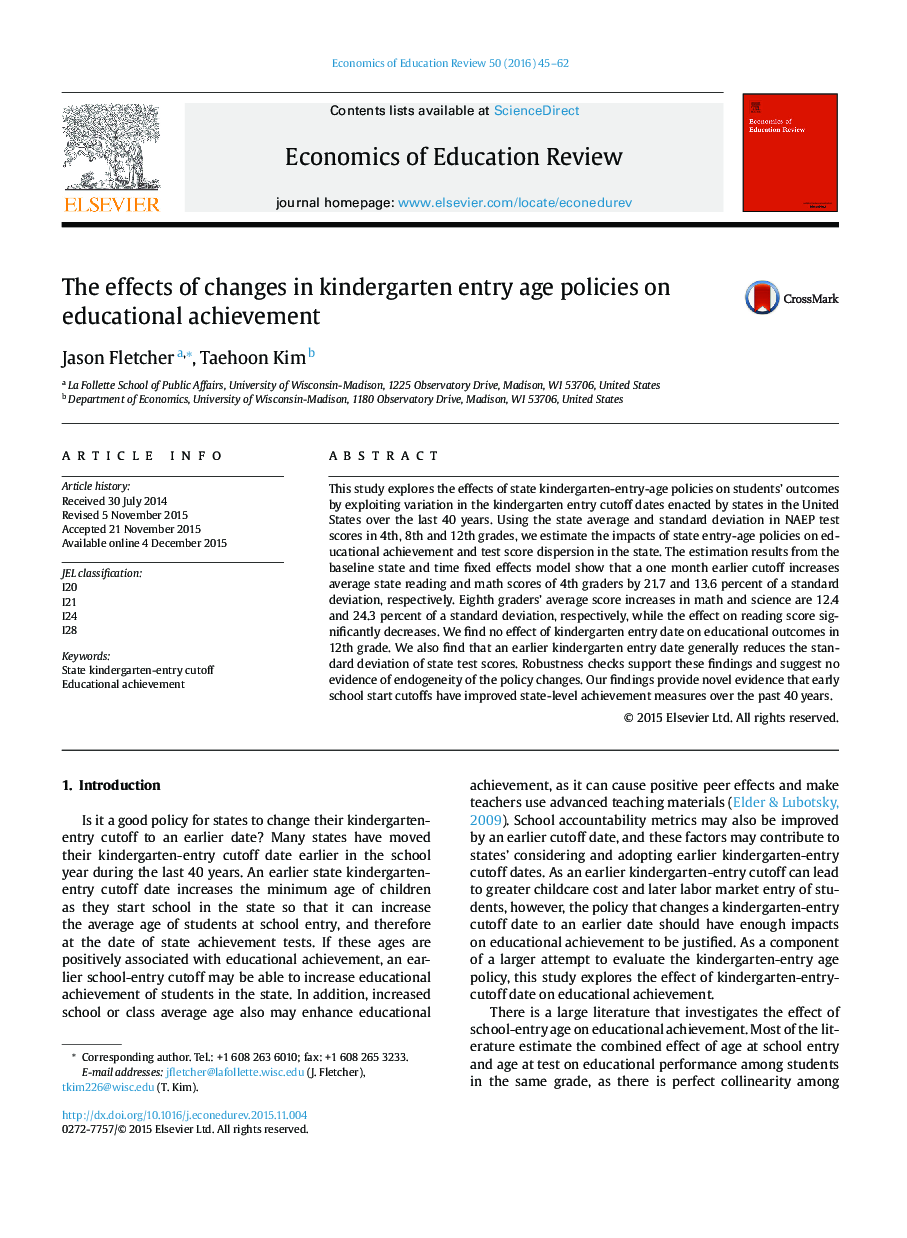| Article ID | Journal | Published Year | Pages | File Type |
|---|---|---|---|---|
| 354245 | Economics of Education Review | 2016 | 18 Pages |
•We estimate the effect of state kindergarten-entry cutoff date on educational achievement.•We exploit the changes of state kindergarten-entry cutoff over the past 40 years.•Having an earlier cutoff date increases state average scores of standardized tests in 4th and 8th grades but does not have a detectable impact on test scores in 12th grade.•An earlier cutoff reduces standard deviations of test scores in states.
This study explores the effects of state kindergarten-entry-age policies on students’ outcomes by exploiting variation in the kindergarten entry cutoff dates enacted by states in the United States over the last 40 years. Using the state average and standard deviation in NAEP test scores in 4th, 8th and 12th grades, we estimate the impacts of state entry-age policies on educational achievement and test score dispersion in the state. The estimation results from the baseline state and time fixed effects model show that a one month earlier cutoff increases average state reading and math scores of 4th graders by 21.7 and 13.6 percent of a standard deviation, respectively. Eighth graders’ average score increases in math and science are 12.4 and 24.3 percent of a standard deviation, respectively, while the effect on reading score significantly decreases. We find no effect of kindergarten entry date on educational outcomes in 12th grade. We also find that an earlier kindergarten entry date generally reduces the standard deviation of state test scores. Robustness checks support these findings and suggest no evidence of endogeneity of the policy changes. Our findings provide novel evidence that early school start cutoffs have improved state-level achievement measures over the past 40 years.
